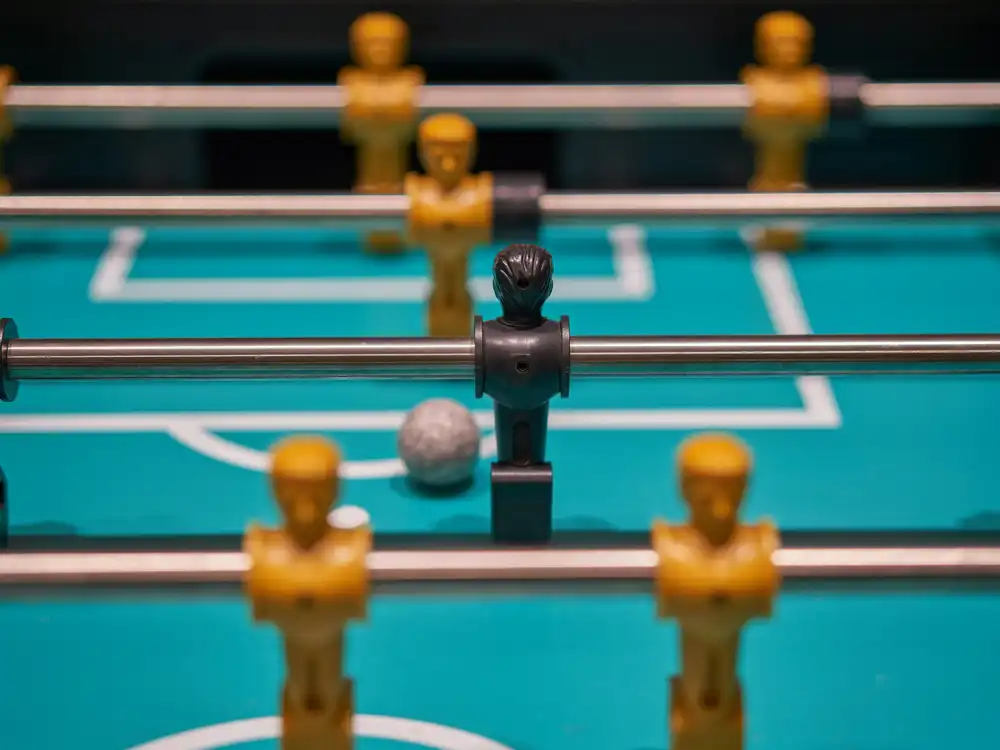From the playground to the boardroom, from sports arenas to casinos, competition is woven into the fabric of human society. We’re constantly striving to outperform others, to win, to be the best. But what drives this seemingly insatiable desire to compete? Is it simply about the rewards, or is there something deeper at play? Today, we’re diving into the fascinating world of the psychology of gambling and competition, exploring the roots of our competitive instinct and its surprising impact on our ability to relax.
The Competitive Instinct: Nature or Nurture?
Is our competitive drive innate, or is it learned behavior? The answer, as with most things, is likely a combination of both.
Evolutionary Perspective
From an evolutionary perspective, competition has played a crucial role in survival. Our ancestors competed for resources, mates, and territory. Those who were more successful at competing were more likely to survive and reproduce, passing on their competitive traits to their offspring.
Social and Cultural Influences
Social and cultural factors also play a significant role in shaping our competitive drive. From a young age, we’re often encouraged to compete in school, sports, and other activities. We’re rewarded for winning and punished for losing, reinforcing the importance of competition.
The Psychology of Gambling: A High-Stakes Competition
Gambling is a particularly intriguing form of competition, as it involves risking something of value on an uncertain outcome. What makes gambling so appealing to so many people?
The Thrill of the Risk
For many people, the thrill of the risk is a major part of the appeal of gambling. The uncertainty and the possibility of winning big can be incredibly exciting and stimulating.
The Illusion of Control
Gamblers often develop a sense of control over the outcome of their bets, even though the outcome is largely determined by chance. This illusion of control can be very enticing.
Social Factors
Gambling can also be a social activity, providing opportunities for interaction and camaraderie with others.
Dopamine Rush
Winning, even small amounts, triggers the release of dopamine in the brain, creating a pleasurable sensation that reinforces the gambling behavior.
The Competitive Instinct in Sports: The Pursuit of Excellence
Sports provide a more structured and socially acceptable outlet for our competitive instincts.
The Desire for Mastery
Athletes are driven by a desire to master their skills and push their limits. The pursuit of excellence can be incredibly rewarding.
The Recognition and Status
Winning in sports brings recognition, status, and admiration from others. This can be a powerful motivator.
Teamwork and Camaraderie
Team sports also offer opportunities for teamwork and camaraderie, creating a sense of belonging and shared purpose.
The Dark Side of Competition: When the Drive Becomes Destructive
While competition can be a positive force, it can also have negative consequences if it becomes excessive or unhealthy.
Stress and Anxiety
The pressure to win can lead to stress, anxiety, and burnout.
Unethical Behavior
The desire to win at all costs can lead to cheating, dishonesty, and other unethical behaviors.
Relationship Problems
Excessive competition can strain relationships with friends, family, and romantic partners.
Competition and Relaxation: A Surprising Connection
Believe it or not, competition and relaxation are not mutually exclusive. In fact, a healthy balance of both is essential for well-being.
Competition as a Stress Reliever
Engaging in friendly competition can be a great way to relieve stress and release pent-up energy. The focus on the game can help you to forget about your worries.
The Importance of Unstructured Play
Unstructured play, without the pressure to win, is also essential for relaxation and creativity. Activities like playing in nature, listening to music, or spending time with loved ones can help you to recharge and reconnect with yourself.
Finding the Right Balance
The key is to find a balance between competition and relaxation that works for you. It’s important to challenge yourself and strive for excellence, but it’s also important to take time to relax, recharge, and connect with your inner self.
Examples and Stories
Let’s illustrate these concepts with some real-life examples:
The Entrepreneur:
An entrepreneur is driven by a strong desire to compete and succeed in the business world. They work long hours, take risks, and constantly strive to outperform their competitors. While this drive can lead to great success, it can also take a toll on their health and relationships if they don’t find a way to balance it with relaxation and self-care.
The Athlete:
An athlete is dedicated to their sport and constantly strives to improve their performance. They train hard, follow a strict diet, and compete fiercely. While this dedication can lead to athletic achievements, it can also lead to burnout if they don’t take time to rest and recover.
Conclusion: Embracing the Competitive Spirit Responsibly
The competitive instinct is a powerful force that has shaped human society and driven us to achieve great things. By understanding the psychology of gambling and competition, we can harness this instinct in a positive way, while also being mindful of its potential pitfalls. Remember to embrace the competitive spirit, but also to prioritize relaxation, self-care, and healthy relationships.
FAQ: Your Competition-Related Questions Answered
Is competition always a good thing?
No, competition can have negative consequences if it becomes excessive or unhealthy.
How can I find a healthy balance between competition and relaxation?
Set realistic goals, prioritize self-care, and engage in activities that you enjoy.
What are some signs that I’m being too competitive?
Signs include feeling stressed, anxious, or burned out, engaging in unethical behavior, and neglecting your relationships.
How can I teach my children about healthy competition?
Encourage them to focus on effort and improvement, rather than just winning, and to respect their opponents.

